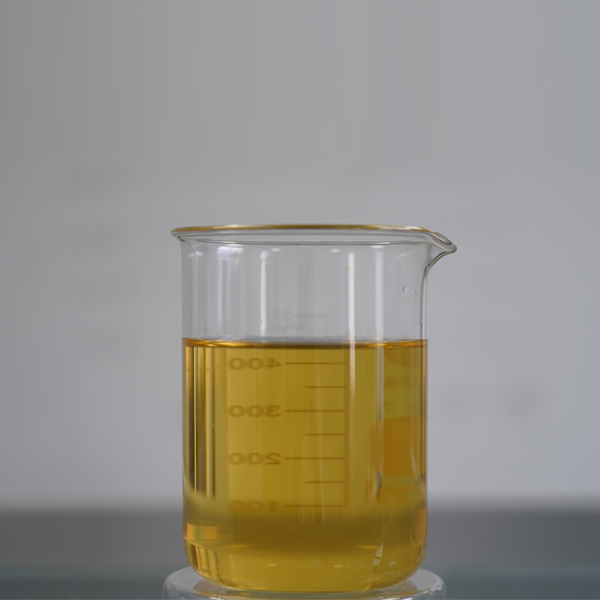
News
dec. . 13, 2024 05:06 Back to list
iminodisuccinic acid potassium salt factory
The Growing Industry of Iminodisuccinic Acid Potassium Salt
Iminodisuccinic acid potassium salt, often referred to as IDS potassium salt, has garnered significant attention in various industries due to its unique properties and environmentally friendly characteristics. As a chelating agent, it plays a crucial role in water treatment, agriculture, and various industrial applications. This article aims to explore the significance of IDS potassium salt, its manufacturing processes, and its potential future in the market.
What is Iminodisuccinic Acid Potassium Salt?
Iminodisuccinic acid is a water-soluble compound with excellent chelating properties, which allow it to bind metal ions effectively. The potassium salt variant of this compound enhances its solubility and application range. Its ability to form stable complexes with metals such as calcium, magnesium, and iron makes it highly valuable in various sectors. Compared to traditional chelating agents like EDTA (ethylenediaminetetraacetic acid), IDS potassium salt is more biodegradable and less toxic, making it a preferred choice in environmentally conscious applications.
Production Process
The production of iminanodisuccinic acid potassium salt involves several steps, starting from the synthesis of iminodisuccinic acid itself. Typically, this process begins with the reaction of aspartic acid or its derivatives with maleic anhydride, followed by hydrolysis and the neutralization of the resulting compound with potassium hydroxide (KOH) or potassium carbonate (K2CO3). The production process must be carefully controlled to ensure a high purity level, as impurities can significantly affect the functionality of the chelating agent.
As industries emphasize sustainability, manufacturers are increasingly investing in green technology to produce IDS potassium salt. This includes the use of renewable resources and minimizing energy consumption during the production process. The establishment of innovative reactors and optimization of reaction conditions not only enhance yield but also reduce the environmental impact of the manufacturing process.
Applications in Various Industries
Iminodisuccinic acid potassium salt finds its applications in numerous fields
1. Water Treatment Its ability to sequester metal ions makes it an excellent choice for water treatment processes. It helps in removing heavy metals from wastewater and can be used effectively in industrial rinse water systems.
iminodisuccinic acid potassium salt factory

2. Agriculture In agriculture, IDS potassium salt is used as a chelating agent to enhance the bioavailability of essential nutrients to plants. This chelation process improves nutrient uptake, leading to healthier crops and reduced fertilizer usage.
3. Household Products The compound is increasingly used in household cleaning products due to its biodegradability and effectiveness in binding metal ions that cause hardness in water.
4. Cosmetics and Personal Care The cosmetic industry utilizes IDS potassium salt for its chelating properties. It ensures the stability and efficacy of formulations by preventing metal ion-induced degradation.
5. Food Industry As food safety becomes more paramount, IDS potassium salt shows promise as a safe alternative to synthetic preservatives, aiding in maintaining the stability of food products.
The Market Outlook
The global market for chelating agents, including iminanodisuccinic acid potassium salt, is projected to witness robust growth. Factors driving this expansion include increased environmental regulations, a shift towards sustainable practices in industries, and the rising demand for eco-friendly products. Companies specializing in the production of IDS potassium salt are likely to benefit from these trends as they innovate and optimize their processes.
Additionally, research and development into the synergistic effects of IDS potassium salt with other compounds could unlock new applications and enhance performance in existing ones.
Conclusion
In conclusion, the manufacture of iminanodisuccinic acid potassium salt represents a significant advancement in the field of sustainable chemistry. As industries move towards greener alternatives, the importance of this biodegradable chelating agent cannot be overstated. Its diverse applications, coupled with the growing emphasis on environmental stewardship, position IDS potassium salt as a vital component in future industrial processes and products. As the market continues to evolve, the ongoing development of production techniques and applications will undoubtedly shape the future of this valuable compound in various sectors.
-
Polyaspartic Acid Salts in Agricultural Fertilizers: A Sustainable Solution
NewsJul.21,2025
-
OEM Chelating Agent Preservative Supplier & Manufacturer High-Quality Customized Solutions
NewsJul.08,2025
-
OEM Potassium Chelating Agent Manufacturer - Custom Potassium Oxalate & Citrate Solutions
NewsJul.08,2025
-
OEM Pentasodium DTPA Chelating Agent Supplier & Manufacturer High Purity & Cost-Effective Solutions
NewsJul.08,2025
-
High-Efficiency Chelated Trace Elements Fertilizer Bulk Supplier & Manufacturer Quotes
NewsJul.07,2025
-
High Quality K Formation for a Chelating Agent – Reliable Manufacturer & Supplier
NewsJul.07,2025
